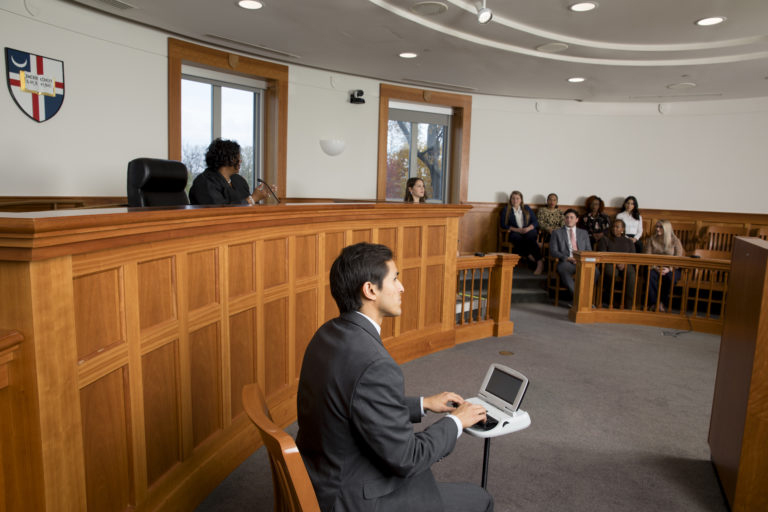The Complete Handbook to court reporting for Legal Professionals
The Complete Handbook to court reporting for Legal Professionals
Blog Article
Comprehending the Essential Duty of Court Reporting in Legal Procedures
Court reporting is often ignored, yet it's vital in legal procedures. You may not recognize how stenotype reporter ensure every word spoken is tape-recorded accurately, affecting decisions made by discretionary. Their skills and technology play a substantial duty in preserving the honesty of legal documents. Yet exactly what does the process involve, and exactly how has it evolved in time? Let's discover the essential functions of court reporting and its value in the legal landscape.
The Background of Court Reporting
Court reporting has a rich history that goes back to old people, where scribes used different techniques to record talked words. The earliest forms of shorthand arised in Greece around 400 BC, permitting philosophers and politicians to tape speeches swiftly. As you move through history, you'll locate that the Romans took on comparable techniques, refining them to document legal process. By the 16th century, modern shorthand systems began to form, allowing stenotype reporter to create exact records successfully.
Today, court press reporters play a significant duty in legal process, making sure that every word spoken in the court room is precisely documented. Recognizing this history highlights the value of court coverage in preserving a reasonable legal system.
The Abilities Required for Court Reporters
As a court press reporter, you need solid typing skills to maintain up with the fast-paced discussion of legal process. Your ability to pay attention diligently is equally as necessary, guaranteeing every word is recorded accurately. Understanding these abilities is essential to delivering exact and reputable transcripts.
Proficient Typing Capabilities

Strong Paying Attention Abilities
Strong paying attention skills are important for court reporters, as they should properly capture talked words in genuine time. This ability assists you separate between speakers, understand lawful jargon, and comply with complicated conversations. Ultimately, solid listening skills make you an indispensable asset in lawful procedures, guaranteeing clarity and precision in the court record.
The Modern Technology Behind Court Coverage
In the domain name of legal proceedings, modern technology plays an important duty in improving the accuracy and efficiency of court coverage. You're most likely accustomed to the typical stenotype equipment, however modern stenotype reporter currently use sophisticated software application that integrates with these makers, permitting real-time transcription. This indicates you can have instant accessibility to the records as the proceedings unravel.
Digital audio recording is an additional technological development that's gaining traction. It records every talked word, guaranteeing nothing is missed out on. Some reporters make use of voice recognition software application, which can aid streamline the transcription process, though it still needs human oversight for precision.
In addition, cloud-based storage allows very easy gain access to and sharing of transcripts, enhancing partnership amongst lawful groups. By leveraging these technologies, court reporters can supply premium, timely documents that are vital for the legal process. Embracing this tech not only improves your understanding yet additionally assures integrity in legal paperwork.
The Court Reporting Refine

As lawful procedures unravel, the court reporting procedure ends up being vital in capturing every information precisely. You'll discover that a court reporter plays a vital function by recording talked words right into written message in real-time. When you step into the court, the press reporter is already prepared, equipped with specialized devices like stenographic makers and audio recording gadgets.
Throughout the procedures, the press reporter listens diligently, keying out whatever claimed, from witness statements to legal representatives' disagreements. You might observe them stopping sometimes to assure clarity or to request for a repeat if something had not been clear. After the session, the press reporter assesses the transcript, making needed edits for readability.
This whole process not only assures an extensive imp source document but likewise prepares you for future reference during charms or instance reviews. In the hectic environment of a court, the court reporting procedure is vital for keeping an accurate account of occasions.
The Significance of Accuracy in Records
While a court press reporter's primary responsibility is to record talked words, the accuracy of these records is essential for the stability of lawful process. When you're involved in a case, you rely on accurate paperwork to recognize the events and disagreements provided. Any type of errors in transcription can bring about misconceptions, misinterpretations, or even wrongful judgments.
Precise transcripts ensure that every detail is captured, offering a trusted document for courts, lawyers, and courts. This degree of information is essential throughout charms or when referencing previous testaments. If a records has errors, it can undermine the whole lawful procedure, potentially impacting outcomes.
Furthermore, accurate records maintain the civil liberties of all events entailed, advertising find fairness and openness. Whether you're a legal representative preparing for test or a witness reflecting on your testament, you can trust that the court reporter's ability in accuracy plays a significant duty in your situation's success.
The Duty of Court Reporters in Different Lawful Settings
Court press reporters play a necessary function in numerous lawful settings, from trials to depositions and lawful hearings. You'll discover that their work warranties every spoken word is precisely captured, which is essential for the lawful process. Recognizing just how their duties differ throughout these environments can highlight their effect on the justice system.
Court Reporters in Tests
In any type of legal trial, you'll locate that court reporters play a crucial function in capturing the process with precision and precision. They record every little thing spoken in the court room, guaranteeing that every word is recorded for future recommendation. This record ends up being vital for allures, allowing greater courts to examine the test's stability. Court press reporters should keep emphasis and speed, often making use of customized devices to stay up to date with hectic discussion. Their work supports attorneys, courts, and juries by supplying a main account of testaments and arguments. If discrepancies occur, the transcript functions as a trusted source to clarify what was stated. Inevitably, court press reporters assist a knockout post promote the justice system, making sure openness and liability throughout trials.
Depositions and Lawful Hearings
Beyond tests, court reporters also play a vital function in depositions and legal hearings. Court press reporters provide real-time transcription solutions, permitting attorneys to comply with along and address any type of problems right away. In short, court press reporters are crucial in maintaining the stability and clearness of the legal record in depositions and hearings.
Future Fads in Court Coverage
As technology remains to advance, the future of court reporting guarantees to be shaped by cutting-edge devices and practices that improve precision and performance. You'll likely see boosted usage of man-made intelligence and real-time transcription services, streamlining the reporting process. These developments can aid you gain access to records much faster, which can be essential for your legal methods.
Furthermore, integrating video clip conferencing and remote reporting will certainly become more common, allowing you to link with court press reporters from anywhere (court reporting). This versatility can make depositions and hearings more available, saving both time and sources
You'll additionally notice a focus on electronic recordkeeping, which simplifies the storage space and retrieval of records. With cloud-based remedies, you'll have the capacity to share papers safely and collaborate with your legal team in real-time.
Frequently Asked Questions
What Is the Ordinary Wage of a Stenotype Reporter?
The average wage of a court reporter differs by location and experience, yet you can expect it to vary from around $50,000 to $80,000 every year. Lots of factors affect this earnings, including field of expertise and need.
How Do I End Up Being a Licensed Court Press Reporter?
To become a licensed stenotype reporter, you'll require to complete a court reporting program, pass a qualification examination, and gain sensible experience. It's crucial to stay upgraded on industry requirements and continuing education and learning requirements.
What Kinds of Situations Do Court Reporters Cover?
Court reporters cover different cases, including criminal trials, civil legal actions, depositions, and settlement hearings. You'll discover them recording whatever, making certain accurate documents for judges, lawyers, and celebrations involved, catching every word spoken in lawful settings.
Are Court Reporters Required to Have a Degree?
Yes, court reporters generally need a level or qualification in court coverage. Many programs provide specialized training, ensuring you get the abilities needed for exact transcription and lawful paperwork in numerous setups.
Can Court Reporters Work Remotely?

Report this page